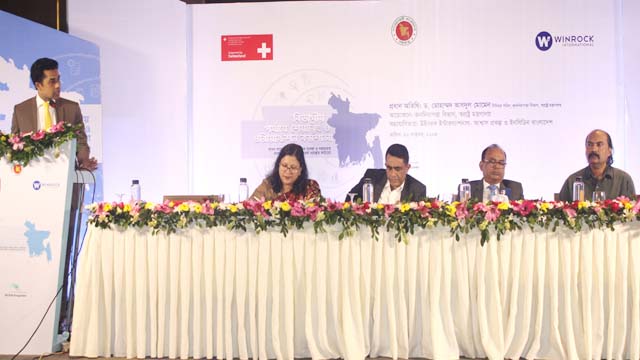
Calls for Urgent Action
Human Trafficking Threatens Economy
Published:
২১ নভেম্বর ২০২৪, ১৬:০৭

Human trafficking, fueled by unsafe migration, poses a significant risk to Bangladesh's economy, experts warned at a workshop held in Dhaka on Wednesday. They urged immediate steps to curb trafficking and ensure safer migration processes to sustain the country's vital remittance flow.
As one of the world’s largest suppliers of migrant workers, Bangladesh depends heavily on remittances to bolster its economy. However, unsafe migration often leads to trafficking, which could disrupt this financial lifeline if left unchecked.
Speakers emphasized the need for a National Referral Mechanism (NRM) to protect trafficking victims and facilitate their rehabilitation. The NRM is a collaborative framework involving government bodies, civil society, and international organizations to identify victims, provide services, and coordinate protection efforts.
Addressing the workshop titled *‘Implementation of National Referral Mechanism in Protecting and Aiding Human Trafficking Victims,’* Abu Hena Mostafa Zaman, Additional Secretary of the Public Security Division, underscored the importance of a unified response to this pressing issue. Representatives from 29 ministries, INGOs, and UN organizations also participated.
The Prevention and Suppression of Human Trafficking Act, 2012, mandates justice and comprehensive support for trafficking victims. The NRM aims to uphold these legal protections by offering coordinated services, including mental, social, and economic rehabilitation.
The five-year Ashshash project (2022–2027), supported by the Swiss Embassy and implemented by Winrock International, is key to this initiative. Operating in 10 trafficking-prone districts, the project focuses on rescuing victims, offering legal aid, providing psychosocial services, and equipping survivors with skills for sustainable livelihoods.
Speakers concluded that combating trafficking is critical not only for safeguarding human rights but also for protecting the economy. They called for greater public-private collaboration and community involvement to address this growing challenge effectively.



Comment: